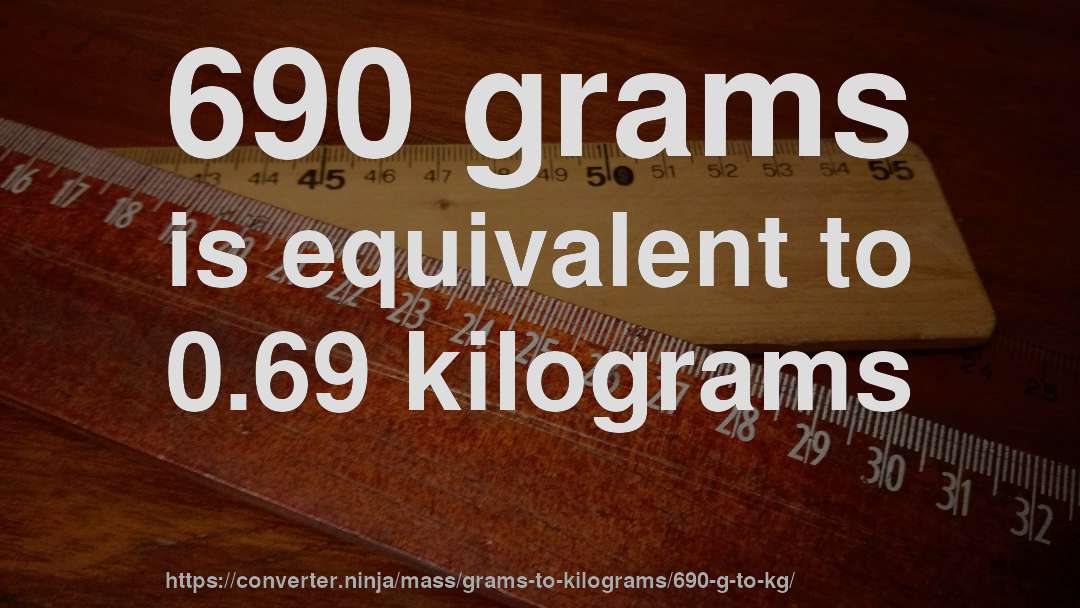690 g to kg - How much is 690 grams in kilograms? [CONVERT] ✔

690 grams is equivalent to 0.69 kilograms.
We know (by definition) that: 1 g = 0.001 kg
We can set up a proportion to solve for the number of kilograms.
1 g 690 g = 0.001 kg x kgNow, we cross multiply to solve for our unknown x:
x kg = 690 g 1 g * 0.001 kg → x kg = 0.6900000000000001 kgConclusion: 690 g = 0.6900000000000001 kg
The inverse of the conversion factor is that 1 kilogram is equal to 1.44927536231884 times 690 grams.
It can also be expressed as: 690 grams is equal to 1 1.44927536231884 kilograms.
Approximation
An approximate numerical result would be: six hundred and ninety grams is about zero kilograms, or alternatively, a kilogram is about one point four four times six hundred and ninety grams.
Units involved
This is how the units in this conversion are defined:
Grams
The gram is a metric system unit of mass. Originally defined as the absolute weight of a volume of pure water equal to the cube of the hundredth part of a metre, and at the temperature of melting ice. However, a gram is now defined as one one-thousandth of the SI base unit, the kilogram, or 1×10−3 kg, which itself is now defined, not in terms of grams, but as being equal to the mass of a physical prototype of a specific alloy kept locked up and preserved by the International Bureau of Weights and Measures. This is in the tradition by which many customary local reference standard stones, lengths (objects) and weights were required to periodically undergo comparison with the official nations standard referents, usually with a particular periodicity defined by the countries statuate laws.
Kilograms
The kilogram is the base unit of mass in the International System of Units (the Metric system) and is defined as being equal to the mass of the International Prototype of the Kilogram. The avoirdupois (or international) pound, used in both the imperial and US customary systems, is defined as exactly 0.45359237 kg, making one kilogram approximately equal to 2.2046 avoirdupois pounds. Other traditional units of weight and mass around the world are also defined in terms of the kilogram, making the IPK the primary standard for virtually all units of mass on Earth.
[1] The precision is 15 significant digits (fourteen digits to the right of the decimal point).
Results may contain small errors due to the use of floating point arithmetic.ncG1vNJzZmibn6PDpr7Tnqlnppmjt6J7zJqqrGeXp66uv4ytpmajmaG8qL7Apqpobmlleqh506hkpJ9f